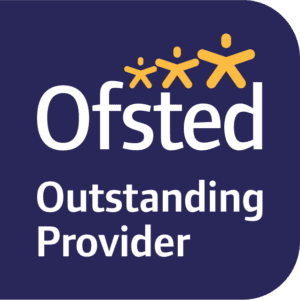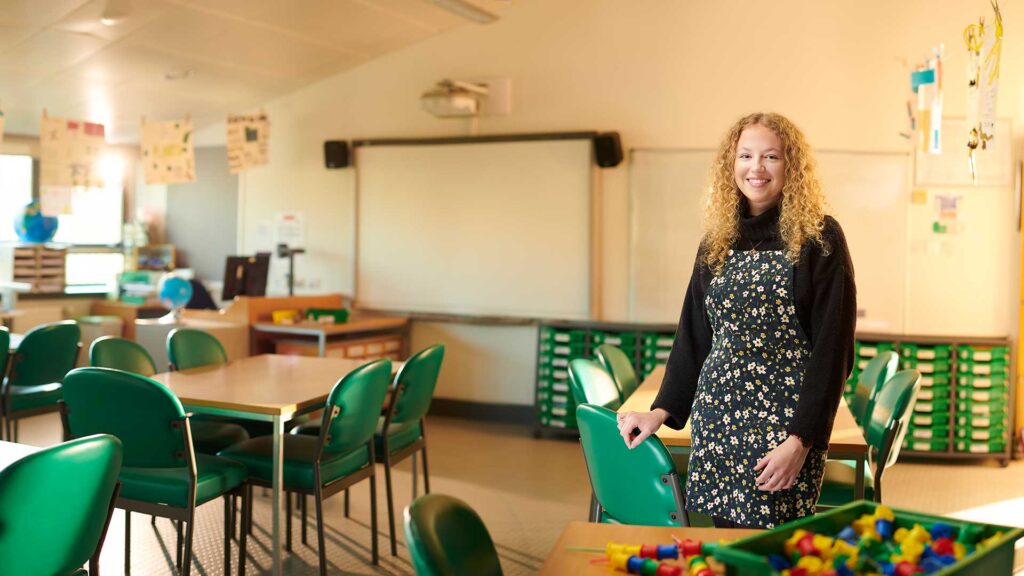Secondary History with QTS (11-16) PGCE
GOV.UK code: V1X1
Are you able to tackle controversial issues? Can you link the past to the present? Train to teach history to 11-16 year-olds and push the boundaries of learning. On completion, you’ll gain recommendation for Qualified Teacher Status (QTS).
Overview
| Course length: | 1 year full-time |
|---|---|
| Start dates: | September 2025 September 2026 |
| Location: | Edge Hill University |
| Example offers: | 2:2 or above (or equivalent) in a relevant subject View full entry criteria |
| Subject(s): | Education and Teaching |
| Faculty: | Education |
| Department: | Secondary and Further Education |

Imagine having the ability to bring history to life for secondary school pupils. History education is not only about passing on historical awareness, but about exciting the imaginations of young people and helping them to see the significance of historical events in the current climate. If that sounds like something you could do, our PGCE Secondary History is for you.
In our long-established programme you’ll receive the highest standard of professional training. You’ll develop innovative approaches to teaching and learning, including a specific focus on matters of diversity and inclusion in the current history curriculum.
Prepare with practical experience
You’ll develop your reflective and analytical skills and have the opportunity to explore different aspects of your subject knowledge. With plenty of practical experience in planning effective lessons and learning strategies, you’ll also get lots of hands-on experience in the classroom.
Throughout your placement, you’ll be supported by your history tutor and school-based expert mentor. Listen to their advice about how to apply what you’ve learnt in seminars to the classroom. Turn to them whenever you need support or feedback.
Successful completion of the programme leads to recommendation for Qualified Teacher Status (QTS).
 Ofsted Outstanding Provider
Ofsted Outstanding Provider
Course features
-
Ofsted outstanding provider for Initial Teacher Education
-
Professional accreditation
-
Professional practice placements
-
International students can apply
What you'll study
At the start of your course you’ll carry out an audit of your subject knowledge. This way you can identify your areas of strength and those you need to develop.
You’ll study the conceptual structure of the history curriculum and essential educational theory, as well as innovative teaching and assessment methods and strategies to encourage the development of practical skills.
Discover creative ways to develop historical understanding, through fieldwork, the use of archives and museum work. Learn how to work with outside speakers from the history education community and how to plan a lesson effectively.
We’ll help you develop your academic skills, including building your subject knowledge, so you can contribute to the teaching of geography and RE at key stage 3.
How you'll study
A combination of academic study, group discussion and reflection, and practical, work-based learning in the classroom will give you all the knowledge and skills you need to become a creative and innovative teacher. The programme aims to develop a reflective and critically analytical approach to education.
You will also enhance your subject knowledge and understanding of learning outside the classroom through participating in field visits to a wide range of sites and museums, including the International Slavery Museum in Liverpool, the Imperial War Museum North in Salford, and the Museum of Science and Industry in Manchester.
You will undertake extensive placements in schools, putting your training into practice through assisting with and taking responsibility for classes, and working alongside mentors and peers to further your professional development. The focus initially is on observation and supporting teaching and learning. Your teaching timetable will increase as your training progresses and you become more confident and competent in the classroom.
You will also undertake Intensive Training and Practice (ITAP) as a specific and focused element of our teacher training curriculum. This is designed to consolidate your knowledge of effective teaching, and enable you to rehearse and obtain feedback from experts on your practice. Our ITAPs are designed to utilise the latest research and technology as well as draw on the outstanding mentors, tutors, and teacher expertise from across our partnership.
Over the course of your training, you will have the opportunity to participate in several days of Intensive Practice focusing on aspects of pivotal practice such as; behaviour management, scaffolding, professional behaviours and questioning.
During periods of ITAP, your timetable may differ and you may be required to attend campus and/or a placement on days outside of the usual pattern.
How you'll be assessed
You will be assessed, through a balanced combination of coursework and portfolio assessments, against both academic criteria and the Standards related to QTS. Weekly tasks undertaken in schools will enable you to develop an understanding of effective teaching and learning approaches which will inform University based sessions. Various other tasks will enable you to show your competence in ICT, numeracy and literacy. The most demanding assignment is a reflective and analytical piece of classroom-based research in which you will consider how pupils learn history, and how your teaching can make that more effective.
Your professional practice will conclude with a final viva that will allow you to demonstrate appropriate achievement against the Teachers’ Standards in order to allow us to make a recommendation for QTS.
Who will be teaching you
The Faculty of Education has been at the forefront of teacher education for over 135 years and today enjoys the enviable position of being one of the country’s leading providers of education, training and research for the children’s workforce.
You will be taught by a dedicated team of knowledgeable, experienced, friendly and supportive tutors who have the welfare of their trainees as a number one priority.
The Edge Hill lead mentors and mentor leadership team play an important part in your teacher training as experts in their field. They have a deep knowledge of the trainee curriculum and support trainees and mentors to make progress providing guidance and support on aspects of the curriculum and assessment.
Entry criteria
Entry requirements (2025 / 2026)
To join this PGCE, you will be expected to have:
- A degree equivalent to UK first-class or second-class honours (2:2 or above) in a relevant subject. Other subjects may be considered if you have an A Level in a relevant subject (or equivalent qualification).
- GCSE English Language or English Literature and GCSE Mathematics at Grade C or Grade 4 or above (or equivalent qualification)
- Satisfactory levels of information and communications technology competence
- A commitment to, and understanding of, secondary education, demonstrating the personal attributes, values and motivation required to train as a teacher.
Please note, for the purposes of initial teacher training, level 2 literacy and numeracy qualifications are not considered as equivalent to GCSE Grade C or Grade 4 in English Language or English Literature and Mathematics.
An interview forms part of the selection process, which can be conducted online or face to face.
If you accept a formal offer from Edge Hill University you will be required to meet the Department for Education’s standards for physical and mental fitness to teach and clearance to work with children. Further information, including a Declaration of Health questionnaire and details of how to apply for a Disclosure and Barring Service (DBS) Enhanced Disclosure will be sent to you after you have firmly accepted an offer.
English language requirements
International students require IELTS 6.5, with a score no lower than 6.0 in each individual component, or an equivalent English language qualification.
If your current level of English is half a band, one band, or one-and-a-half bands lower, either overall or in one or two elements, you may want to consider our Pre-Sessional English course.
How to apply
Apply full-time
Read our guide to applying for PGCEs and Postgraduate Teacher Training to find out more about the application process.
International
Please see our international student pages for further information about how to apply as a prospective international student.
This course is now closed to international applications for 2024 entry.
Should you accept an offer of a place to study with us and formally enrol as a student, you will be subject to the provisions of the regulations, rules, codes, conditions and policies which apply to our students. These are available at www.edgehill.ac.uk/studentterms.
There’s plenty of opportunities to come take a look around campus. Attend one of our open days to see what life at Edge Hill University is all about.
Book an open day
Facilities
 The Faculty of Education enjoys the enviable position of being one of the country’s leading providers of transformative education, training and research for the teaching and education workforce. Housed in a state-of-the-art £9m building, the Faculty of Education enjoys a stunning setting from both its lakeside and piazza buildings.
The Faculty of Education enjoys the enviable position of being one of the country’s leading providers of transformative education, training and research for the teaching and education workforce. Housed in a state-of-the-art £9m building, the Faculty of Education enjoys a stunning setting from both its lakeside and piazza buildings.
Facilities in the lakeside building include a 300-seat lecture theatre, five well-equipped ICT suites, and 18 teaching rooms complete with the latest technology.
Our nearby piazza building houses our Research Hub and our Secondary and Further Education department including a lecture theatre and a number of seminar rooms.
Where you'll study
Finance
Tuition fees
UK Full-Time
£9,535
for the course
International
£17,000
for the course
EU/EEA and Swiss students who have settled or pre-settled status under the EU Settlement Scheme, as well as Irish nationals, may be eligible for the UK tuition fee rate.
Financial support
Subject to eligibility, UK students joining this course can apply for a Tuition Fee Loan from the Government to cover the full cost of tuition fees. UK students enrolling on the course may also be eligible to apply for additional funding to help with living costs.
Scholarships
We offer a range of scholarships, which celebrate the determination, commitment and achievement of our students. Many of our scholarships are awarded automatically. There are some however, where you will need to be involved in an application or nomination process. To find out more about our scholarships and check your eligibility, please visit our dedicated scholarships pages.
Money Matters
Please view the relevant Money Matters guide for comprehensive information about the financial support available to eligible UK students.
Applicants to Student Finance should apply for undergraduate funding and not a postgraduate loan. Subject to eligibility, UK students joining this course can apply for an additional Bursary from the government. Please see updated eligibility from the bursaries and scholarships page.
EU/EEA and Swiss students who have settled or pre-settled status under the EU Settlement Scheme may be eligible to apply for financial support. Irish nationals can ordinarily apply to Student Universal Support Ireland (SUSI). If you are an EU student who does not have settled or pre-settled status, or are an international student from a non-EU country, please see our international student finance pages.
Your future career
This PGCE is accredited by the Department for Education. Successful completion of the programme will enable you to gain recommendation for Qualified Teacher Status (QTS).
You’ll be ready to progress into employment as an early career teacher of history at secondary school level. Our proactive careers service can help you to find job vacancies. They also offer in-depth advice on teacher job applications and interviews.
With plenty of academic and professional experience, you could also continue to MA or MRes study. Following this, you could even work towards a PhD.
Course changes
Every effort has been made to ensure the accuracy of this information, however our courses are subject to ongoing review and development. Changing circumstances may necessitate alteration to, or the cancellation of, courses.
Changes may be necessary to comply with the requirements of professional bodies, revisions to subject benchmarks statements, to keep courses updated and contemporary, or as a result of student feedback. We reserve the right to make variations if we consider such action to be necessary or in the best interests of students.









